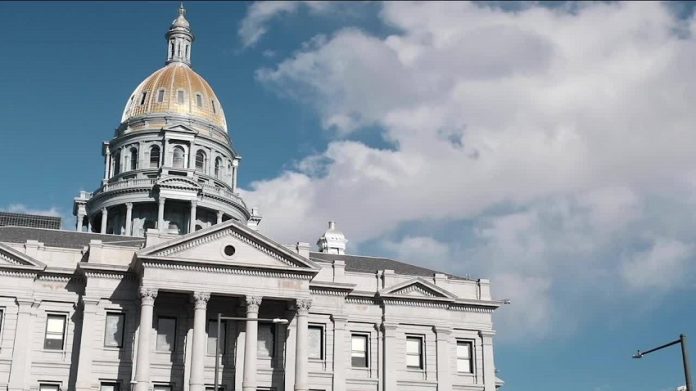Pueblo, CO – As Colorado’s legislative session nears its conclusion, state lawmakers are racing against the clock to push key bills across the finish line before the 11:59 p.m. deadline on Wednesday. Many of the bills that garnered initial support earlier in the session, however, appear unlikely to make it to the governor’s desk.
One of the most debated pieces of legislation, House Bill 25-1312, passed its final hurdle in the Colorado Senate on Tuesday. The bill, which seeks to expand legal protections for transgender individuals in Colorado, was met with mixed reactions. Supporters argue that the bill ensures transgender people cannot be denied housing, employment, or public services based on their gender identity. Additionally, public forms would be required to respect a person’s chosen name and gender marker.
State Senator Chris Kolker, a sponsor of the bill, emphasized that it would not create “superior rights” for transgender individuals, nor would it strip rights from others. However, opponents, including State Senator Lisa Frizell, have raised concerns over potential infringements on parental rights. A controversial provision that would have allowed courts to consider a parent’s deadnaming or misgendering of a child in custody disputes was removed from the bill prior to its approval. Despite this, critics argue the legislation still poses risks to family dynamics.
The Senate approved the bill by a 20-14 vote, largely along partisan lines. Two Democrats, Senators Kyle Mullica and Marc Snyder, sided with Republicans in opposition to the bill.
Meanwhile, another significant bill—Senate Bill 25-005—was approved by the House. This legislation would make it easier for workers to form labor unions by eliminating the requirement for a second election, which some argue has made the process unnecessarily difficult. Supporters, including Stephanie Felix-Sowy, president of SEIU Local 105, believe the bill will provide fairer, more democratic representation for workers across the state.
However, business groups, including Jesse Mallory from Americans for Prosperity Colorado, have voiced strong opposition. Mallory argued that the bill could disrupt the balance between businesses and employees, and expressed concerns that non-union workers could be forced to pay union fees. Proponents of the bill counter that non-union workers benefit from union bargaining and should contribute to representation costs.
The bill has prompted tension within Governor Jared Polis’s office, with business and labor groups failing to reach a consensus during the governor’s negotiations. Governor Polis’s spokesperson, Eric Maruyama, expressed disappointment that the two sides could not come to an agreement, yet reiterated that the governor hopes both parties find a way to move forward on issues of fairness and worker opportunities.
Polis now faces pressure from within his own party to sign the bill, while opponents are urging him to veto it. “He’s caught in a really tough place,” Mallory said. “There is no middle ground.”
In addition to these two high-profile bills, the Senate also advanced legislation to crack down on wage theft, as well as a new school financing formula aimed at increasing equity in public education funding. Another proposal, which would ask voters to decide whether to continue funding the Healthy Meals for All program, is also moving forward.
The House passed two additional bills—Senate Bill 25-124 and Senate Bill 25-071—aimed at reducing healthcare costs and prescription drug prices, two issues that have been central to public discourse as Coloradans continue to grapple with rising medical expenses.
However, not all proposals are on track for success. A resolution challenging the constitutionality of the Taxpayer’s Bill of Rights (TABOR) will not be advancing this year, and a bill designed to make it easier for churches and schools to build affordable housing on their land has failed to gain enough support to move forward.
As the session nears its final hours, lawmakers in Colorado are left to reflect on a legislative session marked by both progress and frustration. With several key bills still in the balance, it remains to be seen which proposals will be enacted into law before the deadline.



